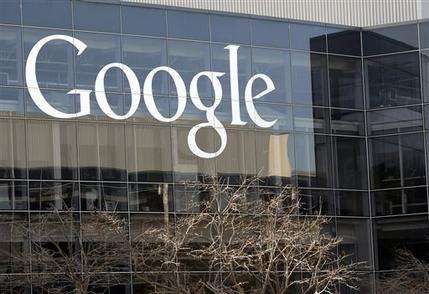Google’s Next Business Venture: The Human Body
 In 2010, the executives at Google created a new extension of the company called Google X. This semi-secretive facility focuses on bringing futuristic ideas to life to create new sources of revenue for the search giant.
In 2010, the executives at Google created a new extension of the company called Google X. This semi-secretive facility focuses on bringing futuristic ideas to life to create new sources of revenue for the search giant.
So far, Google X has primarily been interested in refining far-fetched concepts like self-driving cars, but recently shifted its attention to disrupting a new business venture: the human body.
Google hired Andrew Conrad in March 2013 to lead the charge on this ambitious endeavor.
Conrad has a Ph.D. in cell biology from the University of California, Los Angeles. He co-founded the National Genetics Institute [1] (NGI) in 1991, where he created an automated device that drastically altered the blood screening process for HIV and other viruses.
In July, The Wall Street Journal [2] pointed out that this approach made it possible to screen millions of blood samples in a fraction of the time it took for previous tests.
NGI became one of the largest genetics labs in the country, and was acquired by Laboratory Corp. of America in 2000.
Conrad stayed on as Labcorp’s chief scientist before jumping over to Google early last year. Now, he is responsible for the life sciences division of Google X.
During an Oct. 28 interview with tech journalist Steven Levy [3], Conrad discussed the goal for this particular segment of the lab: “The mission of Google X Life Sciences is to change healthcare from reactive to proactive. Ultimately it’s to prevent disease and extend the average lifespan through the prevention of disease, make people live longer, healthier lives.”
Conrad oversees a large team that consists of more than 100 chemists, scientists and other specialists who are searching for innovative ways to eradicate diseases before they actually happen.
As the interview with Levy progressed, Conrad discussed the three projects the Google X Life Sciences team is currently working on:
- An experimental pill [4] that could hunt for malignant cells in a person’s body, which would transmit the findings to a wearable device.
- A high-tech contact lens [5] that can detect glucose levels through tear ducts.
- A baseline study that will utilize a sophisticated blend of genetics and molecular analysis to discover what being “healthy” really means. The initial test group will be 175 people, but Conrad mentioned that the number will increase at a later phase.
The one thing these experiments have in common is data. Conrad’s team is sifting through a tremendous amount of health information to develop a more precise targeting system for diseases and other maladies.
Google’s efforts are a part of a significant trend forming in Silicon Valley. Multiple tech firms are looking for ways to harness health data through different outlets. Microsoft launched a new fitness tracker [6] to cull data for research purposes, while Apple built a comprehensive suite of health apps into the latest generation of iPhones.
Conrad concluded the interview by explaining that these projects need time to develop. Partnerships are going to play a big role in the further evolution of these experiments, but he is optimistic that these tools will be available within five years.